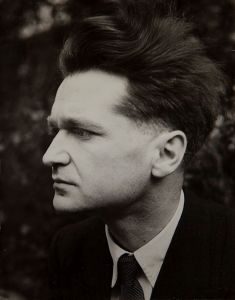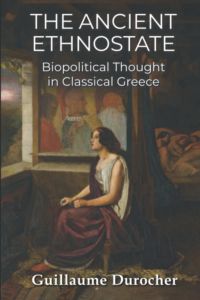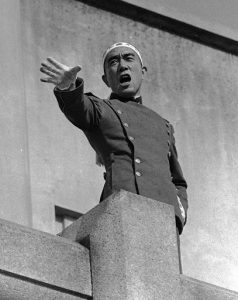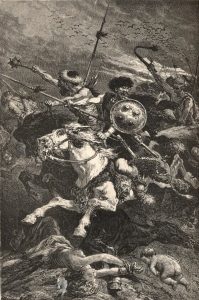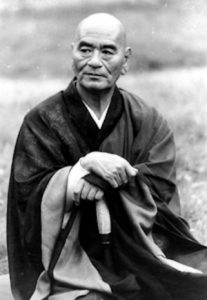Emil Cioran was a Romanian philosopher. Cioran was born on April 8, 1911 in Rășinari (Transylvania, then part of Austria-Hungary and today part of Romania) and died stateless in Paris on June 20, 1995. A nationalist writer in his youth, after the Second World War he achieved fame as a French-language author of essays and aphorisms of a markedly dark and apparently nihilistic bent. (more…)
Tag: Guillaume Durocher
-
1.812 slov
English original here
Historická fakta obvykle bývají podstatně paradoxnější a zajímavější, než následně o nich vytvořené mýty. Při čtení vynikající sbírky esejí Julia Evoly jsem narazil na fascinující baronův rozhovor s jiným aristokratem a dlouholetým propagátorem „evropského federalismu“, hrabětem Richardem von Coudenhove-Kalergi. (more…)
-
March 20, 2023 Guillaume Durocher
Buddha a Führer:
Mladý Emil Cioran o NěmeckuEnglish original here
Emil Cioran
Apologie de la barbarie: Berlin – Bucharest (1932-1941)
Paris: L’Herne, 2015Špičkové nakladatelství L’Herne v roce 2015 vydalo velice zajímavý titul: sborník článků Emila Ciorana, otištěných před válkou v rumunských novinách. Cioran, později slavný aforista, byl i v době před spojeneckým vítězstvím bystrým pozorovatelem, kousavým kulturním kritikem a politickým analytikem. (more…)
-
March 8, 2023 Jean-Marie Le Pen
Charles de Gaulle a válka v Alžírsku
1.303 slov
English original here
Poznámka Guillaume Durochera, překladatele z francouzštiny: Text je výňatkem ze závěrečné kapitoly knihy Jean-Marie Le Pena Mémoires: Fils de la nation (Paris: Muller, 2018), s. 396-398.
[Občanská válka mezi gaullisty a jejich odpůrci] se v průběhu 50. let poněkud zklidnila, popřípadě přesunula do jiných oblastí. Kvůli Alžírsku se však plnou silou rozhořela nanovo. (more…)
-

Bývalý předseda Jobbik Gábor Vona v roce 2015. Strana již od počátku roku 2013 začala „uhlazovat“ svoji militantní podobu.
3.715 slov
English original here
Jobbik, svého času označovaný za nejradikálnější parlamentní stranu v Evropě, se v průběhu několika málo let proměnil v centristické a Evropské unii nakloněné uskupení, čímž zcela opustil svou dřívější radikální rétoriku, namířenou proti EU, NATO, hnutí LGBT nebo cikánské zločinnosti. Dnes se strana pokouší vytvořit spojenectví s liberální a progresivní levicí s cílem svrhnout vládu premiéra Viktora Orbána a jeho strany Fidesz. V tomto článku se pokusíme stručně nastínit průběh tohoto politického obratu o 180°. (more…)
-
Guillaume Durocher
The Ancient Ethnostate: Biopolitical Thought in Classical Greece
Self-published, 2021It almost goes without saying that any book written today by someone from the Dissident Right on the subject of Classical Greece will be more accurate to the spirit of antiquity and more honest about the racial realities that underlie it than anything that could be published in contemporary academia. This book gives a good survey of the history, culture, and ideas of key writers of various sorts in Ancient Greece. (more…)
-
Counter-Currents Radio host Greg Johnson welcomed Guillaume Durocher, a writer who is an expert on French politics, to talk about the Zemmour Question, and it is now available for download and online listening.
Topics discussed include:
Zemmour’s background
Religious beliefs (more…) -
Emil Cioran was a Romanian philosopher. Cioran was born on April 8, 1911 in Rășinari (Transylvania, then part of Austria-Hungary and today part of Romania) and died stateless in Paris on June 20, 1995. A nationalist writer in his youth, after the Second World War he achieved fame as a French-language author of essays and aphorisms of a markedly dark and apparently nihilistic bent. (more…)
-
In the latest episode of Guide to Kulchur, Greg Johnson, Guillaume Durocher, and Ty E join Fróði Midjord to discuss the life and art of Yukio Mishima. On November 25th, 50 years ago, Mishima committed ritual suicide to inspire the Japanese to return to their aristocratic honor culture.
The episode is archived on BitChute (video) and Spreaker (audio only). Guide to Kulchur streams live on DLive every Tuesday at 2:00 PM Eastern Time / 20:00 CET.
(more…) -
2,411 words
Translated by Guillaume Durocher
Translator’s Note: The following extracts are drawn from Emil Cioran, Précis de décomposition (Paris: Gallimard, 1949). The title is editorial.
There are no beings more dangerous than those who have suffered for a belief: The great persecutors are recruited among the martyrs who were not beheaded. (13)
-
872 words
Translated by Guillaume Durocher
One cannot know what a man must lose to have the courage to defy all conventions; one cannot know what Diogenes lost to become the man who allowed himself to do everything, who turned his most intimate thoughts into acts of a supernatural insolence, as would a god of knowledge, at once libidinous and pure. No one was more frank; an extreme case of sincerity and lucidity, as well as an example of what we could be if education and hypocrisy did not restrain our desires and actions.
-
Translated by Guillaume Durocher
Hailing from some unfortunate tribe, he paces about the West’s boulevards. Having loved one fatherland after another, he no longer hopes for any: Frozen in a timeless dusk, a citizen of the world – and of no world, – he is ineffective, nameless, and without vigor. (more…)
-
3,080 words
Translated by Guillaume Durocher
Translator’s Note: The following extracts are drawn from Taisen Deshimaru, Zen et Arts martiaux (Paris: Albin Michel, 1983 [1977]). The style reflects the rambling, spontaneous speaking of many Zen masters, whose “writings” are often not of their own initiative, but rather sayings recorded by their pious (often Western) followers. Another example of this would be Shunryū Suzuki, who was popular in California. This does raise the question of how “Taisen Deshimaru” authored the books ascribed to him. (more…)
